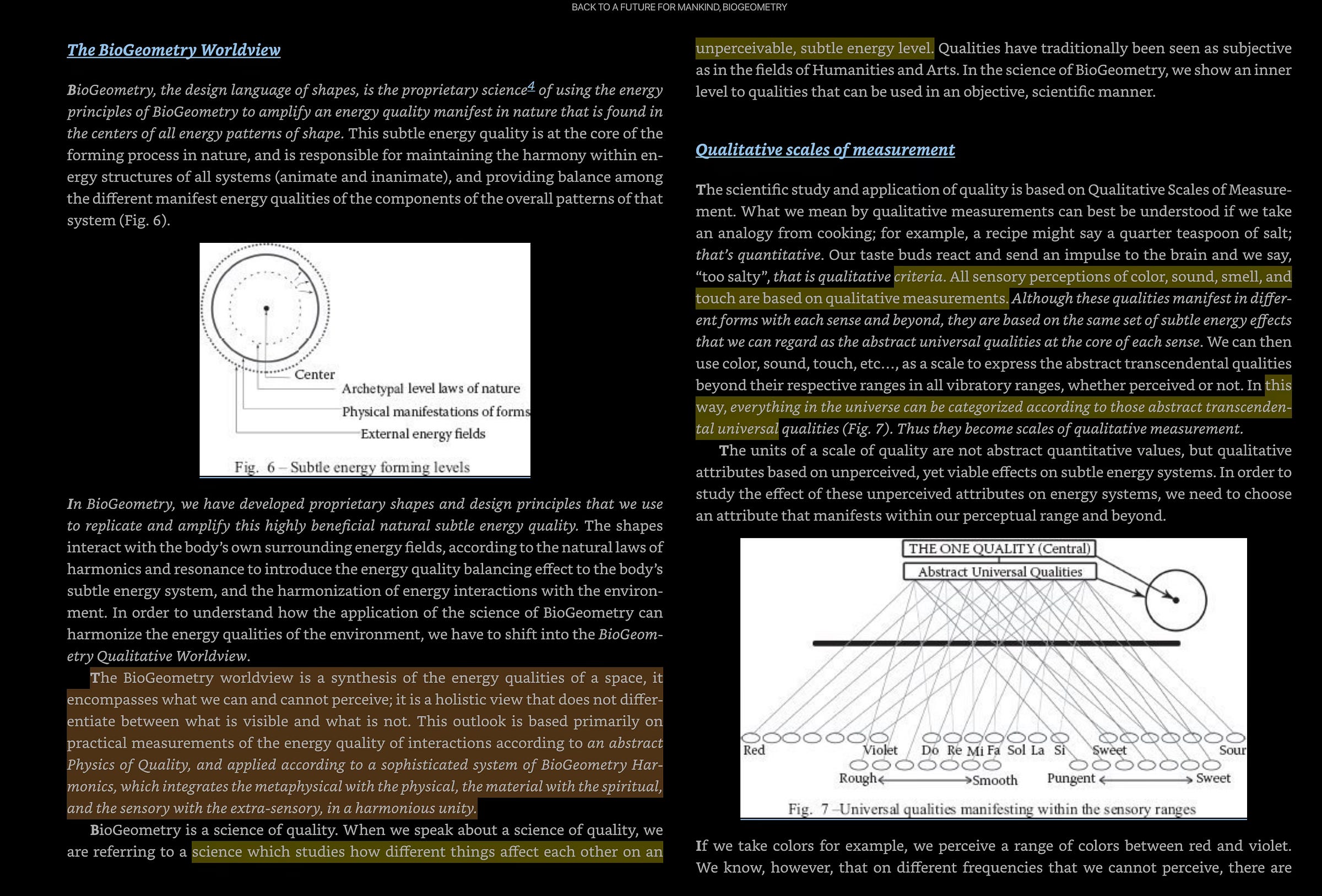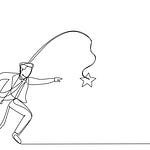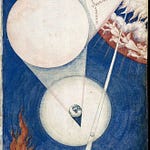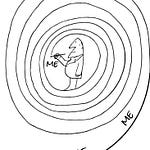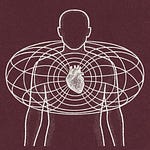In 1999, or the year 2000, whenever The Matrix came out, I remember watching the movie and being completely mesmerized. But one of the reasons why I was so mesmerized is because I used to be high as a kite, and used to just engage my life very high on dope. I remember what the movie's about, like all the stuff that I watched at the time. I never re-watched, I just don't feel like it. But everything that I watched, I went really deep into it. I thought I needed to engage with substances so I could connect to my intuition—it turned into did not.
Then I quit. I quit around 2003. First I quit cigarettes, then I quit marijuana, and that was fine. I learned that I needed to trust my body rather than to trust the substances, but that's another story.
So now... I am reminded of a scene, a very particular scene in The Matrix, I don't even know if it's the first, the second, or the third, doesn't matter, where Neo is going to see the Oracle, and then he meets this very young person with a bald head. He looks like a Buddhist monk, and he has a set of spoons, and he's bending one spoon in front of Neo's astonishment.
Spoon Boy: Do not try and bend the spoon. That's impossible. Instead, only try to realize the truth.
Neo: What truth?
Spoon Boy: There is no spoon.
Neo: There is no spoon?
Spoon Boy: Then you'll see that it is not the spoon that bends, it is only yourself.
The Matrix, 1999
That's like an emoji that explodes in the head 🤯, because when we understand the whole reality that we are perceiving is based on our conditioning, and then there's other ways of seeing ourselves from the outside, we understand that we have the power of change, the power of human action, the power of making decisions that are better for ourselves, etc.
The real shift happens not by altering the illusion, but by altering the self that perceives it.
Neo's lesson: Don't resist the illusion. See through it. Shift your awareness, and the world shifts with you.
In short:
Reality is not fixed. You are the variable.
Sympathy,a fundamental vibrational principle
Another thing that I want to link is the idea of sympathy as a word that has been used tremendously wrong, because people use the word sympathy not as what it means, that it's a fundamental vibrational principle. Right now, it's been reduced to some weak emotional reaction, like feeling sorry for someone, but at the very end, this sympathetic vibratory physics, SVP,1 has nothing to do with this sentimentality. It is a fundamental vibrational principle of resonance, coherence, and universal connectedness.
Etymologically of the word is a "sym," together, and "pathos," feeling, experience. So, the meaning "shared response" is not pity. Some people like Russell or Keely use it correctly.
-Sympathetic streams are scalar coupled fields of resonance.
-Sympathetic tuning is how one object or system causes another one to vibrate or respond without contact.
-Sympathetic control allows for power transmission, healing, field alignment, or motion induction through phase-locked coherence.
Thus we can actually become sympathetic to a resonance or a specific frequency, resonating in alignment—one can even bend matter. So the spoon boy in The Matrix wasn't performing a trick. He was accessing a sympathetic field, an unseen resonance between thought and matter. There is no spoon, because there is no separation between subject and object in scalar vibratory reality (SVP). And sympathy, in the SVP sense, becomes the mechanism of reality bending: alignment of frequency, not force. So this, in SVP, is called a mechanics of coherence.
Being kind + graceful
My mom taught me tuning. She taught me that sympathy begins in the gesture. She taught me to be always present when somebody else does a gesture—like if I go to somebody else's house, if I could bring something or say thank you, if I can compliment somebody, I do so. If I read a book, an article that I like and I know the author, I can communicate—I tell them how grateful I am for them doing that.
She showed me how to really respond with gratitude and also recognition towards the others. She taught me that so well. So it doesn't take anything away from me from being complimentary to people. Perhaps some people don't trust a part of myself. They think that probably I'm just—I don't know—I need something. But it is genuine. When I do compliment people, when I support people, when I invest in their courses, when I do something like that, it is because I am completely invested in their authentic expression of what they're doing.
The beginning of me becoming Hellēne
In 1985, I was living in Paris and I had a roommate named Eirini—Peace. She invited me to spend Christmas with her family in Athens. I'd never been to Greece before. I never imagined I was going to live in Athens after, like in 1988. It just happened. And once I arrived, I met her childhood friends during Christmas—and years later, when I moved to Greece, I realized that Christmas had changed everything.
One of them was this young man. He was two years younger than me, born in 1966. I was probably 21, he was 19. His name was Omiros—Ομηρος—Homer. One of the most beautiful Greek names one can have. An homage to the poet, to the myth, to the origin.
We fell in love, and it was not just a relationship. It was an initiation—an initiation into Greek culture. Through him and his close friends, I met Greece. I entered into the mythic landscape. And through the Greeks themselves, I received my first real education. Not academic, but experiential. Day-to-day life with them was full of thought, form, passion, laughter, contradiction. They didn't teach me by explaining. They taught me by being. And that's the beginning of me becoming Hellēne.
Things that happened during my stint in Athens was that I observed that as a culture—mostly Mediterranean—they were more free in how they relate to their bodies. Summers were long and free. It was such a great time for me to trust myself in so many different ways. I inquired a lot—why were they so different from other Europeans? I delved into the history of Turkey and Greece and how important it is to study the philosophers to understand that Western civilization was based not just in the Greeks but also the Egyptians.
I came into myself in Greece—running freely through the rocks and the beaches, being topless and diving into the warm waters of the Mediterranean during summer, having long, long afternoons with coffees and long, long conversations where I learned to really listen to myself and to others. I owe a lot of who I am right now to spending some time with this wonderful culture.
If we understand where our culture is coming from, perhaps we're going to have less problems with one another. I want to emphasize that having a dialogue is very important these days. Dialogue emerges through opposite listening—the willingness to hear without resistance. From this space, a third way opens: the synthesis.
In dialectic, the practice is not to defeat the other's view, but to listen fully to both the self and the other—to stay present in tension without collapsing into attack or defense. We need to practice this more, especially now. Real communication, non-violent and authentic, is a skill of civilization.
I did not become Hellēne by studying. I entered resonance through that culture. I learned how to speak Greek. I moved there. I studied the ancient philosophies, and the Greeks pulled me into their mythos—not through effort, but through sympathetic alignment, through shared archetypal vibration.
What we call falling in love is often just that—a sympathetic tuning. From Omiros to Athens, my field changed shape.
Athena is reason, strategy, logic embodied—born from Zeus’ head. She is the POLIS, the city, the state, the structure. But Hellēne is not a citizen. Hellēne is a frequency. A state of mind. A way of relating to thought, form, and myth.
Greece as a modern nation is not the same as Hellēne. The name carries resonance, but the myth is older than the state. Hellēne is the vibration of philosophy as lived perception. It is the line from Homer to Proclus. From myth to metaphysics.
Pierre Grimes (1924-2024), a modern philosopher who revived the tradition of Socratic midwifery2, taught that philosophy was not about doctrine—it was about dialogue, self-inquiry, and clarity. He saw Greek thought not as Western origin myth, but as a practice of alignment. A tuning. This is what I experienced.
To be Hellēne is not to own a passport. It is to live in the frequency of thought that bends reality. It is to host the myth without grasping it. To live with form as field.
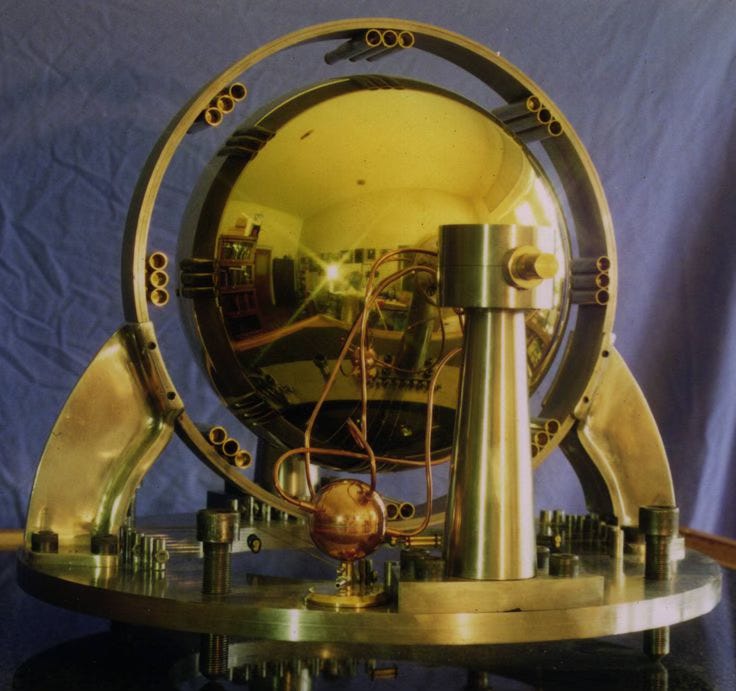
A sympathetic disharmony asking to be tuned
This first week of May always reminds me of my father.
His birthday, May 4th, follows mine by seven days. This year, Pluto stations retrograde on his day. The Moon enters Leo and squares the Taurus Sun and Vesta.
We feel the tension: fixed earth meets expressive fire. The desire to root meets the need to radiate. Venus has crossed the Aries Point. Mercury moves toward Chiron. Saturn teeters at the end of Pisces. Pluto begins its backward pull.
We are here to listen. When the Moon squares the Sun and Vesta, it’s not a force—it’s a phase conflict. A sympathetic disharmony asking to be tuned.
In harmonic astrology, the 45° and 90° aspects are agents of mutation. They disrupt coherence to reveal evolution. They open the threshold. As individuals, we are here to evolve. By tuning, we’re clearing the platform where the new self will soon be standing.
In Austrian economics, subjective value theory says value does not live in the object—it lives in perception. In relationship. Nothing has value in itself. Value arises through recognition, resonance, desire, needs and time.
This is the same principle as sympathetic vibratory physics. Nothing exists apart from its field. Meaning emerges in vibration. What we tune to is what becomes real.
Time preference is the same—it’s about alignment through patience and trust. What are you in phase with—now or later?
The Austrian school said that value is in the eye of the chooser. The physicists say vibration responds to tuning. They were saying the same thing. And when I step into the Bitcoin world, I recognize the same sympathetic field. It is a frequency. A vibrational agreement on property rights, sound money, individual action, and low-time preference. Bitcoin is a code, a field.
To be Hellēne is to feel aligned. Sympathy is not a sentiment. It is law.
I move in sympathy with what is.
The spoon bends.
The body aligns.
The space appears.
All outer planets are changing signs.
Neptune is in Aries.
Pluto is in Aquarius.
Saturn will soon enter Aries. (05/24/25)
Uranus is preparing to move into Gemini. 07/ 07/25
Jupiter will soon enter Cancer. 06/09/25
All structural shifts.
The Greeks called nature physis—a motion toward form. Becoming. A process. Every being moves toward what it is.
Plato described the world we perceive as a copy—a projection. Reality lives in the pattern, as we decipher appearances.
Aristotle spoke of physis as the internal motion that brings something into its own shape.
That’s what this moment is.
When planets shift, perception shifts. The reality we move through begins to reorganize. Because of form.
This is ancient structure. This is physics in the Greek sense.
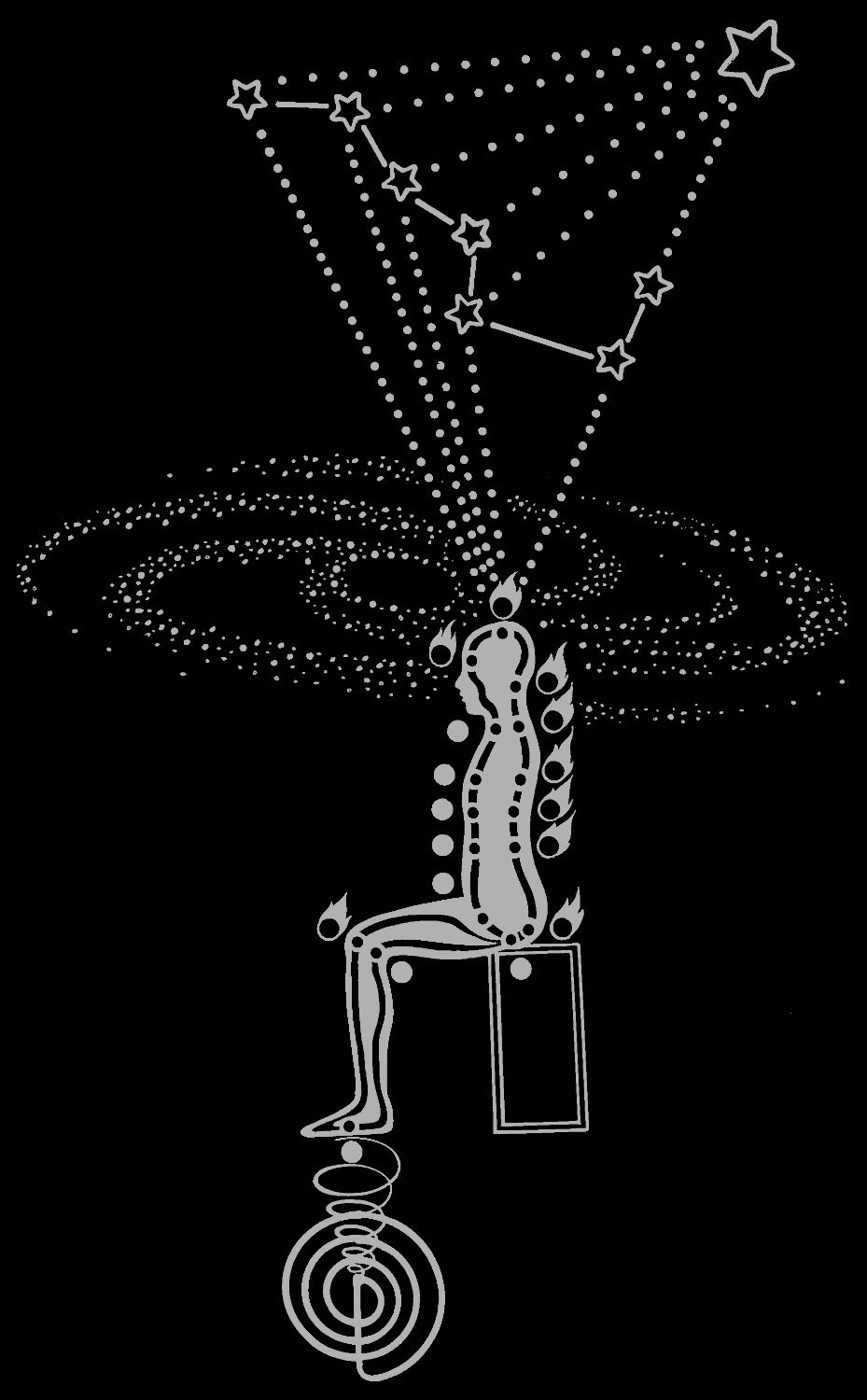
The Egyptians have always had the reputation of being the wisest of mankind.”
— Herodotus
Listening to Ibrahim Karim, with whom I learned Biogeometry recently, he reminded me that time, as we know it, is perception—an artifact of the left brain. Real time pulses. It's spherical, not linear. We live in one thin thread of simultaneity, mistaking the shimmer of a wave for the ocean itself.
He reminded me that the body is a portal—our heartbeat not just a rhythm, but a signal—a resonance with the universal mind. The afterlife is not later. It's now. It moves through the subconscious, through the biological intelligence that keeps us alive without our knowing. Translation is not truth. What we call visions or channeling are filtered reflections, shaped by the databanks of culture.
Resonance shapes reality. Consciousness flows via resonance—not cause and effect. You don't choose what you encounter in the other realm; your subconscious patterns attract it.
And if that’s true, then excellence of action becomes the only true ritual—when the pulse of the universe shapes our motion, not the projection of what we think it is. It’s not what we believe. It’s how precisely, how harmonically, we live.

"The void between letters, not the letters themselves, carries the meaning. Emotion lives in the silence, not the sound”
~Ibrahim Karim, Let's Go to Paradise
The spoon is vibration. This is what the Greeks knew, because they learned it from the Egyptians. They studied form as motion, number as power, and the stars as living structure. They translated what they received—not into belief, but into geometry, proportion, and the logos of the heavens. They watched the stars move in ratios. They studied number as vibration, geometry as truth, harmony as structure. They understood that matter responds to tuning. Alignment is the method. Frequency determines how form emerges.
Today, Palantir3 exists as the modern manifestation of this ancient principle—a technological structure designed to align and tune data frequencies. But unlike the Greeks who sought wisdom through sympathetic resonance with the cosmos, this system seeks control through the manipulation of human patterns.
The government will use Palantir to keep all records of the IRS. People express concern about monitoring, yet we have already surrendered everything to the technocracy. The ancient Egyptians understood both the power and danger of such systems. They built infrastructure that lasted millennia because they aligned with cosmic principles rather than seeking dominance over them.
The fear lies in trusting that you know enough without studying principles. The technocracy advances—Palantir with your data, Neuralink with your brain. Musk's original vision for Neuralink aimed to merge human brains with artificial intelligence, creating a direct interface between your consciousness and their systems. This represents the ultimate frontier of technological control—no longer just monitoring your behavior, but merging with your thoughts.
"In a world of scarce resources, globalization without new technology is unsustainable." Peter Thiel.
Humanity has evolved rapidly, compelling us to confront our knowledge gaps. Just as Pythagoras spent years in Egypt studying with priests, we must study civics, the constitution, common law. To stand as a free woman or man requires knowing what shapes your mind. To code your own GPT demands understanding the frequencies that program your perception.
Your mind bends the spoon. Your consciousness creates freedom. No system grants liberty—you manifest it through perception. Freedom exists as a singular human action—your decisive choice in each moment. The technocrats know this ancient truth. They offer convenience while harvesting attention. They speak of liberation while coding limitation.
As Plato acknowledged Egypt as a source of enduring truths, so must we acknowledge that our technological reality demands deeper understanding. As society becomes more dystopian, the more you understand, the more you question authorities appearing as support, including technology.
What we now call Western thought began with this reception. Philosophy was not invention. It was memory reawakened. Similarly, freedom today requires remembering what came before the technological overlay—remembering how to live in accord with natural law.
As Alex Karp, Palantir's CEO, once said: "Technology as Sword and Shield...can be used for good, but just as easily for nefarious purposes." He argues that we must choose who writes the code that shapes our world.
The spoon is vibration. You are resonance. To be Hellēne is to remember. To think with the cosmos. To act in accord with the logos. These coming months call for this shift. Feel what is present before it takes form. Pay attention to who writes the code. The world responds not to theory, but to coherence.
There exists no villain. Everyone acts as a villain. And there exists only one hero. You.
“Let me not then die ingloriously and without a struggle, but let me first do some great thing that shall be told among men hereafter.”
— Homer, The Iliad
Sympathetic Vibratory Physics (SVP):
A system of energetic science developed by John Ernst Worrell Keely in the 19th century, SVP proposes that all matter and energy are governed by sympathetic resonance—that is, things vibrate not in isolation, but in response to shared frequencies. In SVP, "sympathy" refers not to emotion but to a precise vibrational alignment between systems, enabling energy transfer, transformation, or influence without physical contact. SVP sees vibration, not force, as the fundamental law of interaction—governing everything from sound and motion to thought and form.
Philosophy, like religion, seeks knowledge of the divine and an ideal for living—but unlike religion, philosophy cultivates understanding through models, examples, and the art of contemplation. Our program follows the Platonic tradition, with dialogues of Plato, Plotinus, Proclus, and more, supported by the study of Greek, Homer, Greek tragedy, and Euclid—to see more deeply what it is to be Hellene. Candidates must explore philosophical problems through Philosophical Midwifery in both roles—pregnant with a problem and midwife—and engage in dialogues on Excellence, Justice, Beauty, Art, the Good, and the One. Certification is granted only to those who meet our rigorous standards of excellence, with all failures treated as objects for further inquiry.
Palantir: (the new deep state??) A data analytics company founded by Peter Thiel that provides surveillance and data processing tools to governments and corporations, named after the all-seeing stones from Lord of the Rings.
*Technocracy: A system of governance where technical experts and engineers hold decision-making power based on technological knowledge rather than elected representatives, prioritizing technical solutions over political or social considerations.




